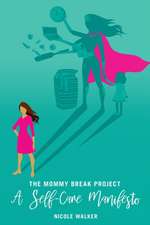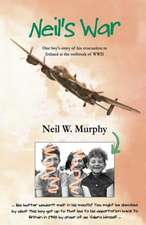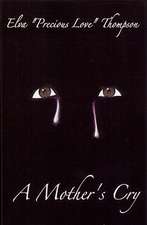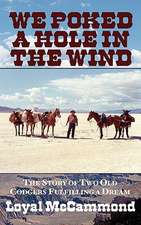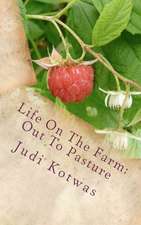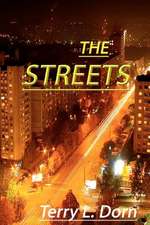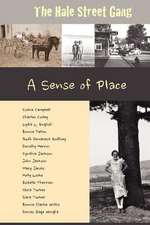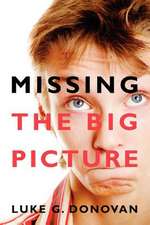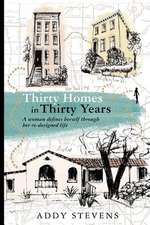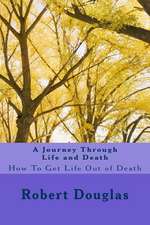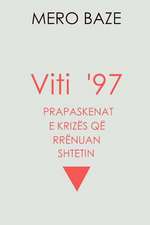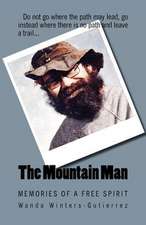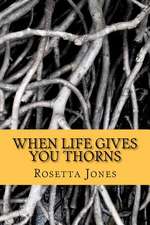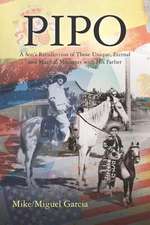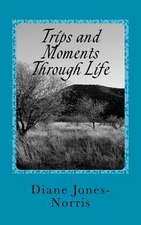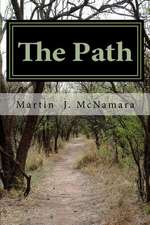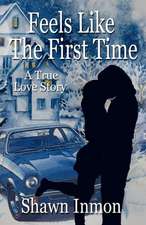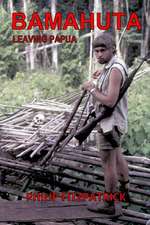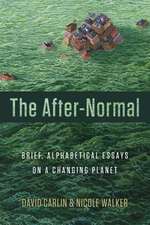Sustainability: A Love Story: 21st Century Essays
Autor Nicole Walkeren Limba Engleză Paperback – 16 aug 2018
In Sustainability: A Love Story, Nicole Walker questions what it means to live sustainably while still being able to have Internet and eat bacon. After all, who wants to listen to a short, blond woman who is mostly a hypocrite anyway—who eats cows, drives a gasoline-powered car, who owns no solar panels—tsk-tsking them? Armed with research and a bright irony that playfully addresses the devastation of the world around us, Walker delves deep into scarcity and abundance, reflecting on matters that range from her uneasy relationship with bats to the fragility of human life, from adolescent lies to what recycling can reveal about our not so moderate drinking habits. With laugh-out-loud sad-funny moments, and a stark humor, Walker appeals to our innate sense of personal commitment to sustaining our world, and our commitment to sustaining our marriages, our families, our lives, ourselves.
This book is for the burnt-out environmentalist, the lazy environmentalist, the would-be environmentalist. It’s for those who believe the planet is dying. For those who believe they are dying. And for those who question what it means to live and love sustainably, and maybe even with hope.
This book is for the burnt-out environmentalist, the lazy environmentalist, the would-be environmentalist. It’s for those who believe the planet is dying. For those who believe they are dying. And for those who question what it means to live and love sustainably, and maybe even with hope.
Din seria 21st Century Essays
-
 Preț: 160.80 lei
Preț: 160.80 lei -
 Preț: 144.33 lei
Preț: 144.33 lei -
 Preț: 108.17 lei
Preț: 108.17 lei -
 Preț: 140.55 lei
Preț: 140.55 lei -
 Preț: 111.26 lei
Preț: 111.26 lei -
 Preț: 105.16 lei
Preț: 105.16 lei -
 Preț: 112.49 lei
Preț: 112.49 lei -
 Preț: 106.20 lei
Preț: 106.20 lei -
 Preț: 166.05 lei
Preț: 166.05 lei -
 Preț: 127.45 lei
Preț: 127.45 lei -
 Preț: 108.03 lei
Preț: 108.03 lei -
 Preț: 140.47 lei
Preț: 140.47 lei -
 Preț: 103.91 lei
Preț: 103.91 lei -
 Preț: 155.05 lei
Preț: 155.05 lei -
 Preț: 147.11 lei
Preț: 147.11 lei -
 Preț: 145.35 lei
Preț: 145.35 lei -
 Preț: 178.10 lei
Preț: 178.10 lei -
 Preț: 148.67 lei
Preț: 148.67 lei -
 Preț: 169.63 lei
Preț: 169.63 lei -
 Preț: 132.52 lei
Preț: 132.52 lei -
 Preț: 176.88 lei
Preț: 176.88 lei -
 Preț: 143.44 lei
Preț: 143.44 lei -
 Preț: 144.05 lei
Preț: 144.05 lei -
 Preț: 148.41 lei
Preț: 148.41 lei -
 Preț: 149.08 lei
Preț: 149.08 lei -
 Preț: 166.85 lei
Preț: 166.85 lei -
 Preț: 173.49 lei
Preț: 173.49 lei -
 Preț: 172.68 lei
Preț: 172.68 lei -
 Preț: 103.72 lei
Preț: 103.72 lei -
 Preț: 119.18 lei
Preț: 119.18 lei -
 Preț: 138.15 lei
Preț: 138.15 lei
Preț: 174.52 lei
Nou
Puncte Express: 262
Preț estimativ în valută:
33.40€ • 34.74$ • 27.99£
33.40€ • 34.74$ • 27.99£
Carte tipărită la comandă
Livrare economică 10-17 martie
Preluare comenzi: 021 569.72.76
Specificații
ISBN-13: 9780814254851
ISBN-10: 0814254853
Pagini: 288
Dimensiuni: 140 x 147 x 23 mm
Greutate: 0.39 kg
Ediția:1
Editura: Ohio State University Press
Colecția Mad Creek Books
Seria 21st Century Essays
ISBN-10: 0814254853
Pagini: 288
Dimensiuni: 140 x 147 x 23 mm
Greutate: 0.39 kg
Ediția:1
Editura: Ohio State University Press
Colecția Mad Creek Books
Seria 21st Century Essays
Recenzii
“Though she visits some dark emotional places, Walker’s voice is human and funny. . . . This kind of wry insight makes me want to read more.”— CATALYST Magazine
“With her sobering and at times darkly humorous writing, Walker brings a refreshingly original perspective to sustainability. She is at once pessimistic and optimistic, somewhat fearful and cautiously hopeful. . . . Her book is a challenge to others to think about the unique role they can play in sustaining the planet.” —Foreword Reviews
“Walker’s Sustainability is a remarkable achievement, brilliantly fusing the rhetoric of green politics to the grammar of parenthood, marriage, place, art, and (that elusive ghost) happiness. The book could hardly be more timely or urgent.” —David Shields
“Sustainability explores Walker’s connection to trying to live while doing minimum damage. A narrative about the specifics of struggling to live sustainably is wound through and around the things that sustain us—marriage, family, friends, place. It is a book that pairs the domestic with the environmental in ways that are not only moving but, ultimately, insightful and surprising.” — Brian Evenson
“Sustainability: A Love Story is singular and gorgeous—a book about life lived on a variety of edges. Nicole Walker melds so beautifully environmentalist research with the fierce love between members of a family, daily domestic life, and the observations of a writer.” —Mary Cappello, author of Life Breaks In
“I didn’t want the journey to end, just as [Walker] doesn’t want the world to end; there are too many great things to live for, this book being one of them.” —NewPages
Notă biografică
Nicole Cherie Walker lives in South China, Maine, and is a K-8 teacher. Born in New York and raised in Maine, she graduated from Northpoint College (Zion Bible Institute in Rhode Island) with a BA in Biblical Studies and Regent University in Virginia with a MA in elementary education. On October 17, 2003, she married Ian Walker, whom she met at Zion. Together, they minister to others and focus on God's calling for their lives. They have four beautiful children: Alexander, Brian, Annabelle, and Baylee. They attend Central Church, where their ministry continues in China, Maine.
Extras
Dear Rain
Dear Rain,
It has been a year of waiting for the fire. You scrape the pine needles from the floor of our yard. You capture the rain in barrels, water the yarrow from the bowels of the gutter-catch. Our son, Max, stands on the cedar play set. His hands move as if he’s chiming in the percussion instruments, cuing the strings. He conducts the clouds. You can’t hear from where you perch, summoning droplets from the spigot, that I ask Max, “Did you make it rain?”
“No. Not yet. I can’t make it rain. I can only make the clouds move.”
“Maybe tomorrow?” I say.
“Maybe tomorrow.”
I sit on the porch, sip my wine, watch you take a bucketful of last month’s collected rain to water the flax. I try to visualize rain. I sort of remember what it looks like. I get distracted by my iPhone. There’s an update on the wild fire. I stare at the sky. Mind of matter. Try to summon clouds. Like Max, I fail to orchestrate the rain. Our daughter Zoë asks me, “Did you see that?”
“What?”
“The hummingbird. It tried to drink out of my ear.”
I missed it. I was thinking about fire.
I should pay attention but the air zaps around me. The static distracts me like an iPhone. I miss my kids saying what they’re saying. I miss the way you rake. By wanting something more, I am missing something all the time. The lack of rain makes me think I’m doing everything wrong.
Just June ago, I looked at the sky and said, “come.” The sky didn’t listen and I knew the words of my prayers were wrong.
I cannot order the clouds any more than I can order the gods I believe in to have mercy on my soul.
The bossiness of prayer does not become me.
Begging repulses rain.
Rain makes me think about loss and the loss of rain. I can’t always remember Portland. I moved to Flagstaff for a reason. It is beautiful here. Within reach of nine national parks, including the Grand Canyon. The top tier of nine descending life zones. Close to Salt Lake where my mother lives. It is not Oregon and Oregon’s perpetual sustainability but I chose this place. It is dry here but, so far, there is plenty of water to drink.
Rain should make me think about weight. Heavy land. Soaked clothes. Do you remember the time we went running in the rain? That was Utah and right after you made me believe we would return to Portland. We didn’t. Instead we ate Portland at the lunch truck like Pok Pok, but not, sesame beef in a taco and then we drove farther south. The dirt turned sandy and you said, “You can see the whole world in a grain of sand” so I rubbed it into my eye. The doctor said the cornea scratched but that was just a record on a record player we played only twice. Talking Heads. Dire Straits. Johnny Cash. Now you, me, and sand. Nothing between us. As one. Pure metaphor but I can feel the sand in my hair, and the sand in you. Together. Forever?
It was only two Junes ago that we faked a Portland and went to the coast but without tacos from the food trucks. We knew we were only posers. Water tourists. It rained but I was mad as a crow. How could it rain in June? I remember Portland in June and a flat creek outside of town, Crow Creek or Eagle Creek, and we (not you we, another we, a we that’s mostly the same as us although she was thinner than me, thin as you) lay on our stomachs and crawled up the river, holding rock by rock as if the river were strong enough to push us down to the Willamette out to the Columbia and off to sea. We’d turn over and sit on our butts and eat blackberries that grew right over the stream. It was hot in June and sunny and Portland was best not because it didn’t rain, the rain is great, but Portland is particularly great when it doesn’t rain in June.
When we visited Portland for the first time since Zoë was born, it rained in June.
Dear Rain,
It has been a year of waiting for the fire. You scrape the pine needles from the floor of our yard. You capture the rain in barrels, water the yarrow from the bowels of the gutter-catch. Our son, Max, stands on the cedar play set. His hands move as if he’s chiming in the percussion instruments, cuing the strings. He conducts the clouds. You can’t hear from where you perch, summoning droplets from the spigot, that I ask Max, “Did you make it rain?”
“No. Not yet. I can’t make it rain. I can only make the clouds move.”
“Maybe tomorrow?” I say.
“Maybe tomorrow.”
I sit on the porch, sip my wine, watch you take a bucketful of last month’s collected rain to water the flax. I try to visualize rain. I sort of remember what it looks like. I get distracted by my iPhone. There’s an update on the wild fire. I stare at the sky. Mind of matter. Try to summon clouds. Like Max, I fail to orchestrate the rain. Our daughter Zoë asks me, “Did you see that?”
“What?”
“The hummingbird. It tried to drink out of my ear.”
I missed it. I was thinking about fire.
I should pay attention but the air zaps around me. The static distracts me like an iPhone. I miss my kids saying what they’re saying. I miss the way you rake. By wanting something more, I am missing something all the time. The lack of rain makes me think I’m doing everything wrong.
Just June ago, I looked at the sky and said, “come.” The sky didn’t listen and I knew the words of my prayers were wrong.
I cannot order the clouds any more than I can order the gods I believe in to have mercy on my soul.
The bossiness of prayer does not become me.
Begging repulses rain.
Rain makes me think about loss and the loss of rain. I can’t always remember Portland. I moved to Flagstaff for a reason. It is beautiful here. Within reach of nine national parks, including the Grand Canyon. The top tier of nine descending life zones. Close to Salt Lake where my mother lives. It is not Oregon and Oregon’s perpetual sustainability but I chose this place. It is dry here but, so far, there is plenty of water to drink.
Rain should make me think about weight. Heavy land. Soaked clothes. Do you remember the time we went running in the rain? That was Utah and right after you made me believe we would return to Portland. We didn’t. Instead we ate Portland at the lunch truck like Pok Pok, but not, sesame beef in a taco and then we drove farther south. The dirt turned sandy and you said, “You can see the whole world in a grain of sand” so I rubbed it into my eye. The doctor said the cornea scratched but that was just a record on a record player we played only twice. Talking Heads. Dire Straits. Johnny Cash. Now you, me, and sand. Nothing between us. As one. Pure metaphor but I can feel the sand in my hair, and the sand in you. Together. Forever?
It was only two Junes ago that we faked a Portland and went to the coast but without tacos from the food trucks. We knew we were only posers. Water tourists. It rained but I was mad as a crow. How could it rain in June? I remember Portland in June and a flat creek outside of town, Crow Creek or Eagle Creek, and we (not you we, another we, a we that’s mostly the same as us although she was thinner than me, thin as you) lay on our stomachs and crawled up the river, holding rock by rock as if the river were strong enough to push us down to the Willamette out to the Columbia and off to sea. We’d turn over and sit on our butts and eat blackberries that grew right over the stream. It was hot in June and sunny and Portland was best not because it didn’t rain, the rain is great, but Portland is particularly great when it doesn’t rain in June.
When we visited Portland for the first time since Zoë was born, it rained in June.
Descriere
Personal essays examining what it means to live and love sustainably while still being able to have Internet and eat bacon.

